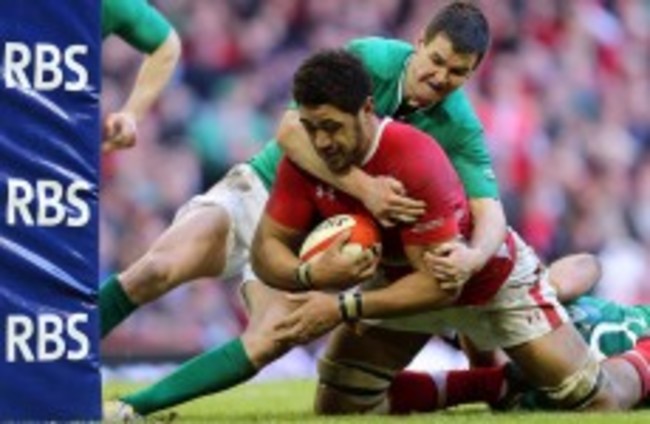YOU DON’T NEED to get your abacus to figure out that Ireland have been outscored by more than two to one across three second halves of this year’s Six Nations.
And it’s little wonder that, before the frustrating defeat to Scotland, Declan Kidney and Les Kiss were each praising the defence after keeping the try-line in tact against England.
The 6-12 loss to the Old Enemy was the first time since the World Cup win over Italy that Ireland have avoided conceding a try.
Now that they have tagged another clean sheet on in the 12-8 loss in Edinburgh, expect that to be one of the ‘positives’ the players and management look to ‘build on’ next week.
However, Ireland’s failing has been far more worrying than merely conceding tries. In November, after giving up a 12-3 half time lead over South Africa, we briefly alluded to Ireland’s habit of getting reeled in from winning positions.
The euphoric blitz upon Argentina left little room for negativity. But through the filter of consecutive losses, even that 40 minute shift was only won by a seven-point margin. Opinion was divided when the next outing showed a 19-7 second half deficit to Wales, the magic of Brian O’Driscoll and Simon Zebo had produced enough of a buffer to withstand the comeback.
But that magic is precious and rare.
13
In 13 games since the World Cup, only England, Argentina, Scotland and Italy have failed to outscore Ireland after the turnaround. Five more winning positions have been turned into four losses and one draw.
All told, Ireland’s second half record in the time-frame reads; 105 points scored, 178 conceded. ‘Tries against’ in minutes 40 to 80 is also at an alarming 20 (versus nine in first halves), even bearing in mind that more tries will always be scored in the second half of matches when defenders tire and lines loosen.
So, why is it that Ireland have been unable to back up these impressive first half displays?
Jekyll and Hyde
The coach is setting the up both Jekyll and Hyde teams in these instances. So, if there is a finger to be pointed at Declan Kidney, it’s for his invention and interventions (or lack of them) during the eight-minute window of half time.
In the bowels of the Aviva Stadium over two weeks ago, he fielded questions on the existence of a ‘plan B’ with the retort that the existing game-plan had taken them into the 22, where handling errors stunted each attack. Those errors were largely eliminated in Murrayfield. Yet the visitors too often rushed through phases and became isolated amid a feral Scottish back row.
Fitness should not be a concern, but the points are up there glowing on the board.
The union’s player welfare programme seems like good, common sense in the main. We would need a lot of empirical evidence before we would suggest it be removed, but the question must be asked: how well does it actually prepare players for an 80-minute battle? Or, for that matter: Is time in the gym versus time on the field taking its toll?
Perhaps these are questions which should be left to the orthopaedic surgeons. But in December, with news of his French adventure still well under wraps, Jonathan Sexton spoke of his frustration at following the diktat. His reason was that he felt it took three to four games to work to a level of performance he was happy with.
Undoubtedly, the system has and is working for some under the IRFU umbrella, but Sexton – comfortable as he is being a lone wolf – cannot be the only one who feels this way. Maybe the very scheme designed to prime our best players for action, is the same which has inadvertently sabotaged their chances when a contest enters a true turning point.
On Sunday night, RTE’s Bodycheck documentary examined the mechanics of Tommy Bowe and showcased the level of technology and precise measurement available to the provinces and the IRFU. Such facilities surely mean player management does not necessarily need to be a blanket approach. It can be tailored to suit each individual.
Something doesn’t add up.

